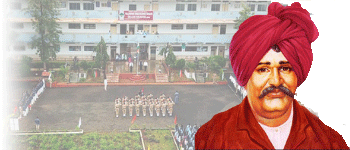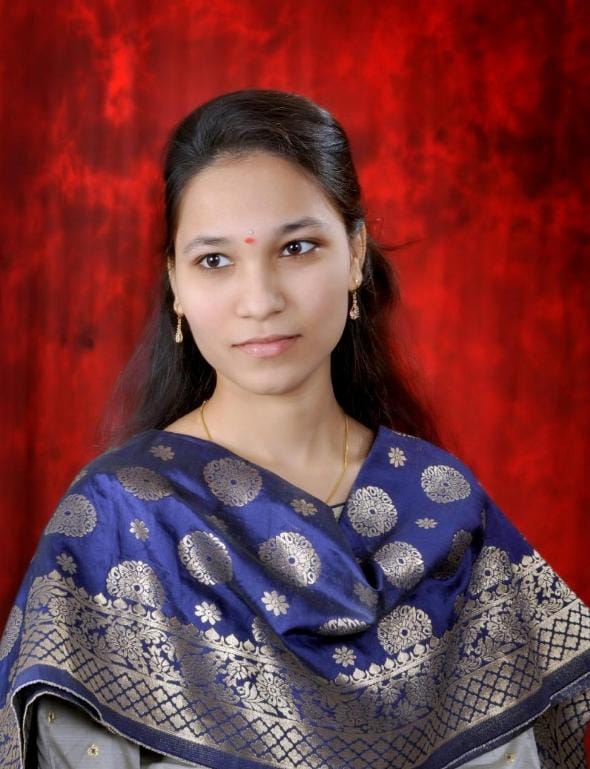Introduction :
Objectives :
- To help students to gain knowledge of the syllabus of economics prescribed for them.
- To help students to know recent and updated knowledge in economics.
- To help students to know the economic problems.
- To guide students to use of money economically, rationally and systematically in day to day life.
- To guide students for career development and getting recruitments
- To develop broad outlook towards finance and its use.
- Establishment: 1963
- Faculty: 02 FULL TIME. 02 CHB
CO, PO & PSO
Programme Specific Outcomes:
PSO1: Understand the functioning of Indian and World economy
PSO2: Analysis Fiscal and Monetary macro economic policies
PSO3: Analysis Economic variables e.g. inflation, poverty, Unemployment by using SPSS Software
PSO4 Understand the functioning of money and capital markets for investment decisions.
Programme Outcomes:
1) Approach to curriculum planning for Arts/ Sci/ Humanities UG/PG Programme- Curriculum Planning refers to the creation of a curriculum.
Curriculum planning should refer the following points for UG/PG Programme.
• Role of the specified subject in UG/PG should reflect on the overall development in student s life.
• There must be knowledge skill and attitude proportion for Materials.
• The UG/PG Curriculum should also be linked with other subjects and fields rather than focusing in only one direction.
2) Changes required in existing Curriculum Design and Approach.
o Use of transactional Strategies
o Syllabus should include Cultural as well as Social activities in order to increase general awareness among students.
o Syllabus should be updated time to time so as to update the knowledge of the students.
o Field work/ study visits should be given preferences monthly.
o Use of Digital education should be preferred according to demands of students.
3) Integration of work experience / field engagement /Case studies/ Internship with domain learning.
• Integrating the recommendations above some criteria’s are described below for enhancement of educational quality-
• Provide students with relevant challenges in the workplace.
• Consider the learning environment
• Let the case studies field work be the part of syllabus.
• Work in partnership with students and the work place organization.
• Empower students with autonomy in the structured work experience along with the yearly syllabus
• Let the learning programme be multitasking and deliberately structured including the recommendations above.
4) Flexibility in Curriculum Design Process
o The development of Curriculum and instructional materials is based on educational theory and research.
o Individual learners and their teachers are diverse with different background and expectations.
o Curriculum must incorporate key generic competencies and be appropriate to a range of learning needs and should be design to encourage life long learning
o As such curriculum must serve the short and long term needs of students.
o Instructional resources must be designed to help students acquire the desired competencies and learning skills, transforming this learning to a range of applications.
5) Learner –centered pedagogy
Learner centered pedagogy is teaching designed for the students
Some of the learner centered instructional methods are given below
1) Co-operative – co-operative learning involves small groups working together to accomplish the learning task
2) Presentations are learner presented assignments, students can do this in groups or individuals
3) Discussion- present an issue an have the students talk about it. If they need additional information have them go find it.
4) Case study- use case studies in the class room to learn about complex issues, apply critical thinking and explore scenarios.
5) Debate-during a debate students challenge each other. The debate can take a break at intervals for additional research.
6) Question and Answers- a question and answer session allows learners and facilitators to learn more from each other.
6) Innovative pedagogy-
Some innovative pedagogies are as follows
1) Open text-books-adopting openly licensed text books.
2) Student led analytics –using data to help learners set and achieve their own goals
3) Immersive learning- modifying learning by experiencing new situations
4) Learning with internal values-using students interests to inspire learning
5) Humanistic knowledge- building communities-helping learners to develop knowledge.
Course Outcomes:
1) Faculty orientation to learning outcome framework:
learning outcomes describe the measurable skills, abilities knowledge or values that students should be able demonstrate as a result of a completing a course. Faculty should offer a variety of interests to the students related to learning outcomes.
i) Faculty should motivates students via video lecturer guest speakers etc.
ii) Should incorporate open discussion after the lecturer
iii) faculty should be available also outside the classroom
iv) faculty should provide study tips and help students when they struggle
v) faculty should use challenging assignments to push students beyond their comfort zones.
2) How to assess good teaching / transaction of curriculum :
1) Curriculum transaction is the effective and desired implementation of the curriculum contents on the basis of aims and objective listed in the curriculum here are some of the requirements for effective curriculum transaction
i) Planning
ii) Clarity of thought
iii) Organizing
iv) Review of the work
v) Team responsibility
vi) Clarity of communication
vii) Knowing observing and understanding students at all times
viii) Time managements
3) Assessment and evaluation based on learning outcome approach:
The assessment and evaluation methods are based on learning outcomes are as follows
i) Course evaluation survey-it asses student experiences and satisfaction with individual course or curriculum
ii) Allumni survey –allumni survey can provide information about curriculum satisfaction employment status
iii) SWOT analysis – analysis of internal strengths and weaknesses of the course department as well as the opportunities
iv) Syllabus review -reviewing a syllabus involves determining it the course is meeting the goals and outcomes that have been established.
Faculties
Photo
Name
Education
Designation
Profile
Dr.Madhura Babasaheb Desai
B.Ed,M.A,MPHIL,Phd
Professor
View
Mrs.samadhan Sandipan Bansode
B.A,M.A,NET
Assistant Professor
View
Miss.Suman Prabhakar Kamble
B.Ed,M.A,SET
Assistant Professor
View
Miss.Priti Shamrao Devane
B.Ed,M.A,SET
Assistant Professor
View
Mr.Vitthal Babu Kasture
B.A,M.A,SET
Assistant Professor
View
Old Faculties
Photo
Name
Education
Designation
Profile
Dr.BHAGYASHREE SHIRISH PUNTAMBEKAR 01/08/20
B.A,M.A,MPHIL,Phd
Professor
View
Dr.Sharvari Ratnakar Kulkarni
Assistant Professor
View
Achievements Reports
Sr.No
Name
Date
Type
Title
Description
Report
1
Dr.Madhura Babasaheb Desai
16-12-2025
University Level
Scrutiny Committee for CAS
View
Sr.No
Name
Date
Type
Title
Description
Report
1
Dr.Madhura Babasaheb Desai
01-08-2024
University Level
CAS Interview
CAS Assessment Member
View
2
Dr.Madhura Babasaheb Desai
29-08-2024
University Level
CAS Interview SUK
Member of CAS Interview SUK
View
3
Dr.Madhura Babasaheb Desai
26-09-2024
University Level
Subject Expert for Teachers recruitment
View
4
Dr.Madhura Babasaheb Desai
25-03-2025
University Level
Member of Syllabus framing sub committee
View
Sr.No
Name
Date
Type
Title
Description
Report
1
Dr.Madhura Babasaheb Desai
09-03-2024
College Level
Syllabus Framing Committee
Chairperson of syllabus Framing sub committee
View
2
Dr.Madhura Babasaheb Desai
09-03-2024
College Level
Syllabus Framing Sub-Committee
Member of Syllabus Framing Sub-Committee (SEC)
View
3
Dr.Madhura Babasaheb Desai
09-03-2024
College Level
Syllabus Framing Sub-Committee
Member of Syllabus Framing Sub-Committee (SEC)
View
4
Dr.Madhura Babasaheb Desai
12-03-2024
University Level
Scrutiny Committee
Member of API Scrutiny Committee
View
Sr.No
Name
Date
Type
Title
Description
Report
1
Dr.Madhura Babasaheb Desai
15-10-2022
University Level
Member Research Score Scrutiny Committee
Appointed as a Member Research Score Scrutiny Committee by Shivaji University,Kolhapur
View
Sr.No
Name
Date
Type
Title
Description
Report
1
Dr.Madhura Babasaheb Desai
10-05-2022
University Level
Promotion as a Professor
CAS Promotion of College Teacher for the post of Academic Level 14
View
2
Dr.BHAGYASHREE SHIRISH PUNTAMBEKAR 01/08/20
25-05-2022
University Level
Promotion as a Professor
CAS Promotion of College Teacher for the post of Academic Level 14
View
Sr.No
Name
Date
Type
Title
Description
Report
1
Dr.Madhura Babasaheb Desai
20-02-2021
University Level
PhD Guideship
Dr. M. B. Desai, PhD Guideship
View
Sr.No
Name
Date
Type
Title
Description
Report
Sr.No
Name
Date
Type
Title
Description
Report
1
Dr.Madhura Babasaheb Desai
23-08-2018
University Level
PG Recognition
Dr. M. B. Desai, PG Recognition
View
Sr.No
Name
Date
Type
Title
Description
Report
1
Dr.Madhura Babasaheb Desai
09-07-2017
University Level
Subject Expert
Appointment as a Subject Expert for Selection Committee at Mahavir College
View
2
Dr.Madhura Babasaheb Desai
11-11-2017
University Level
Women Representative
Appointed as a VC nominee Women Representative for selection committee at Tisangi College, Nivade
View
3
Dr.BHAGYASHREE SHIRISH PUNTAMBEKAR 01/08/20
23-03-2018
University Level
RECOGNITION AS POST GRADUATE TEACHER
RECOGNITION AS POST GRADUATE TEACHER
View
4
Dr.BHAGYASHREE SHIRISH PUNTAMBEKAR 01/08/20
31-03-2018
University Level
RECOGNITION AS POST GRADUATE TEACHER
RECOGNITION AS POST GRADUATE TEACHER
View
Students Achievements Reports
Sr.No
Name
Date
Type
Title
Description
Report
1
Vitthal Babu Kasture
30-08-2025
State
Qualified Set Exam 2025
View
Sr.No
Name
Date
Type
Title
Description
Report
1
Dipa Vilas Ranage
21-08-2024
College Level
Third Rank in B.A - II Examination
View
2
Sonali Raskar
21-08-2024
College Level
B.A – III ( Economics) Stood first in Department of Economics and got BERI scholarship
View
3
SAGAR BALU LONDHE
08-10-2024
University Level
SECURED THIRD RANK FOR STORY WRITING IN MAGAZINE COMPETITION AT UNIVERSITY LEVEL
View
4
Vinayak Krushnat Nikam
15-10-2024
National
Selection AGNI VEER
View
Sr.No
Name
Date
Type
Title
Description
Report
1
SNEHAL GAUTAM BANSODE
28-06-2023
State
Qualified SET Exam
View
Sr.No
Name
Date
Type
Title
Description
Report
1
Mr.Saurabh Shewale
17-01-2023
State
Indian Constitution Public Awareness Defender Award 2023
Mumbai,Maharashtra State awarded
Indian Constitution Public Awareness Defender Award 2023 to Mr.Saurabh Shewale, Manager sawali care center (NGO) for his remarkable contribution
View
2
SNEHAL GAUTAM BANSODE
13-04-2023
National
QUALIFIED NET EXAM 2022-23
QUALIFIED NET EXAM 2022-23
View
3
Swapnil Sunil Samindar
25-05-2023
State
SRPF
View
4
SNEHAL GAUTAM BANSODE
29-05-2023
State
Qualified SET Exam
View
Sr.No
Name
Date
Type
Title
Description
Report
1
MR.PANKAJ GAWADE
28-01-2022
State
QUALIFIED SET EXAM (2018)
QUALIFIED SET EXAM (2018)
View
2
Sarika More
01-03-2022
University Level
PH.D DEGREE HOLDER
PH.D DEGREE HOLDER
View
Sr.No
Name
Date
Type
Title
Description
Report
1
AMAR JADHAV
01-01-2021
University Level
PH.D DEGREE HOLDER
View
Sr.No
Name
Date
Type
Title
Description
Report
Sr.No
Name
Date
Type
Title
Description
Report
1
SARIKA MORE
18-05-2019
University Level
Awarded Ph.D by Shivaji University,Kolhapur
View
Sr.No
Name
Date
Type
Title
Description
Report
1
MR.PANKAJ GAWADE
19-03-2018
National
Qualified Net Exam (2018)
Qualified Net Exam (2018)
View
Research Publications
Sr.No
Name
Date
Publication Type
Level
Title
Link
1
Dr.Madhura Babasaheb Desai
25-10-2025
Journals
International
IJEBAMPSR
View
2
Dr.Madhura Babasaheb Desai
01-10-2025
Journals
International
IJEBAMPSR
View
Sr.No
Name
Date
Publication Type
Level
Title
Link
1
Dr.Madhura Babasaheb Desai
01-03-2025
Journals
International
Ajanta
View
2
Dr.Madhura Babasaheb Desai
01-03-2025
Journals
International
Vidyavarta
View
Sr.No
Name
Date
Publication Type
Level
Title
Link
1
Dr.Madhura Babasaheb Desai
10-12-2023
Conference\Proceedings
Other
शिवार्थ
View
2
Dr.Madhura Babasaheb Desai
01-03-2024
Journals
International
B. Aadhar
View
Sr.No
Name
Date
Publication Type
Level
Title
Link
1
Dr.Madhura Babasaheb Desai
17-12-2022
Conference\Proceedings
International
View
2
Dr.BHAGYASHREE SHIRISH PUNTAMBEKAR 01/08/20
04-03-2023
Journals
National
Navjyot
View
3
Dr.BHAGYASHREE SHIRISH PUNTAMBEKAR 01/08/20
17-12-2022
Conference\Proceedings
International
View
Sr.No
Name
Date
Publication Type
Level
Title
Link
1
Dr.Madhura Babasaheb Desai
15-10-2021
Journals
International
Akshar Wangmay
View
2
Dr.Madhura Babasaheb Desai
24-03-2022
Journals
International
IJAAR
View
3
Dr.BHAGYASHREE SHIRISH PUNTAMBEKAR 01/08/20
03-12-2021
Journals
International
RESEARCH JOURNEY
View
Sr.No
Name
Date
Publication Type
Level
Title
Link
1
Dr.Madhura Babasaheb Desai
24-03-2021
Journals
International
AIIRJ
View
Sr.No
Name
Date
Publication Type
Level
Title
Link
1
Dr.Madhura Babasaheb Desai
24-10-2019
Journals
International
IJAAR
View
2
Dr.Madhura Babasaheb Desai
25-03-2020
Journals
International
AJANTA
View
3
Dr.Madhura Babasaheb Desai
27-03-2020
Journals
International
AIIRJ
View
4
Dr.BHAGYASHREE SHIRISH PUNTAMBEKAR 01/08/20
21-12-2019
Journals
International
AAYUSHI
View
5
Dr.Madhura Babasaheb Desai
12-11-2019
Books
National
Macro Economics
View
Sr.No
Name
Date
Publication Type
Level
Title
Link
1
Dr.Madhura Babasaheb Desai
28-03-2019
Journals
International
Research Journey
View
2
Dr.Madhura Babasaheb Desai
15-12-2018
Journals
International
Aayushi
View
3
Dr.Madhura Babasaheb Desai
12-09-2018
Journals
International
Aaushi
View
4
Dr.Madhura Babasaheb Desai
02-02-2019
Journals
International
AMIERJ
View
5
Dr.Madhura Babasaheb Desai
23-02-2019
Journals
International
AIIRJ
View
6
Dr.Madhura Babasaheb Desai
28-03-2019
Journals
International
Research Journey
View
7
Dr.BHAGYASHREE SHIRISH PUNTAMBEKAR 01/08/20
22-09-2018
Journals
International
Aayushi International Interdisciplinaryy Research Journal
View
8
Dr.BHAGYASHREE SHIRISH PUNTAMBEKAR 01/08/20
02-12-2018
Journals
International
AJANTA An International Multidisciplinary Quarterly Research Journal
View
9
Dr.BHAGYASHREE SHIRISH PUNTAMBEKAR 01/08/20
22-09-2018
Journals
International
AAYUSHI
View
10
Dr.Madhura Babasaheb Desai
22-09-2018
Journals
International
Aayushi
View
11
Dr.BHAGYASHREE SHIRISH PUNTAMBEKAR 01/08/20
11-02-2019
Journals
International
Aayushi International Interdisciplinaryy Research Journal
View
12
Dr.Madhura Babasaheb Desai
15-12-2018
Journals
International
Aayushi
View
13
Dr.Madhura Babasaheb Desai
15-12-2018
Journals
International
Aayushi
View
14
Dr.BHAGYASHREE SHIRISH PUNTAMBEKAR 01/08/20
22-09-2018
Journals
International
AYUSHI INTERNATIONAL INTERDISCIPLINARY
View
15
Dr.BHAGYASHREE SHIRISH PUNTAMBEKAR 01/08/20
12-12-2018
Journals
International
AJANTA
View
Sr.No
Name
Date
Publication Type
Level
Title
Link
1
Dr.Madhura Babasaheb Desai
20-12-2017
Journals
International
AIIRJ
View
2
Dr.Madhura Babasaheb Desai
27-03-2018
Journals
International
Research Front
View
3
Dr.Madhura Babasaheb Desai
12-08-2017
Books
National
Managerial Economics
View
4
Dr.BHAGYASHREE SHIRISH PUNTAMBEKAR 01/08/20
01-03-2018
Journals
International
RESEARCH FRONT JOURNAL
View
5
Dr.BHAGYASHREE SHIRISH PUNTAMBEKAR 01/08/20
01-03-2018
Journals
International
RESEARCH FRONT An International Multidisciplinary Journal
View
Activities Reports
Sr.No
Date
Type
Title
Report
1
11-08-2025
College
Training Programme on Career opportunities in Securities Market
View
2
15-08-2025
College
Wallpaper - “AI And Indian Economy"
View
3
18-09-2025
College
Eassy Competition
View
4
10-10-2025
University
participation in lead college workshop
View
5
07-12-2025
College
Online Quiz on the occasion of “World Population Day” 2025 - 26
View
6
06-01-2026
College
study visit
View
Sr.No
Date
Type
Title
Report
1
11-07-2024
College
Online Quiz on the occasion of “World Population Day” 2024-25
View
2
13-07-2024
College
Guest Lecture on “India’s Population and Today’s Reality”
View
3
09-09-2024
College
“Essay Competition” on the occasion of Birth Anniversary of Dr.Karmveer Bhaurao Patil.
View
4
05-12-2024
College
AVISHKAR RESEARCH CONVENTION 2024 – 25
View
5
08-12-2024
College
wallpaper Presentation "Viksit Bharat"
View
6
08-01-2025
College
“Career Guidance on Financial Literacy Motivational and Educational”
View
7
24-01-2025
College
Trade Fare
View
8
04-02-2025
College
Central Budget
View
9
06-02-2025
College
Webinar on Wealth Management
View
10
08-02-2025
College
Study Visit
View
11
08-02-2025
College
Study Visit
View
12
18-03-2025
College
Students and Faculty Exchanges Programme
View
13
26-04-2025
College
Wallpaper on Dr Manmohan Singh
View
Sr.No
Date
Type
Title
Report
1
11-07-2023
College
Online Quiz on ‘World Population Day’2023-24
View
2
10-08-2023
College
Guest Lecture on ‘Various Services Provided by Bank of Maharashtra’
View
3
15-08-2023
College
Wallpaper - “Contribution of women Indian freedom struggle”
View
4
14-09-2023
College
On the occasion of 136th Birth anniversary of Padmabhushan Dr. Karmaveer Bhaurao Patil, an “Essay Competition”
View
5
02-11-2023
National
National Seminar on Organic Farming : Importance and Marketing
View
6
25-01-2024
College
Guest Lecture on Role of Youth in Economics Development
View
7
29-01-2024
College
wallpaper Presentation "Impact of environment change on Agricultural"
View
Sr.No
Date
Type
Title
Report
1
11-07-2022
College
ONLINE QUIZ ON THE OCCASION OF WORLD POPULATION DAY
View
2
15-08-2022
College Level
Wallpaper
View
3
17-09-2022
College Level
Essay Competition
View
4
17-10-2022
College
QUIZ COMPETITION- ‘WORLD POVERTY ERADICATION DAY’
View
5
04-11-2022
College
Guest Lecture on “Recent Trends in Poverty Measurement”
View
6
26-01-2023
College
Wallpaper Presentation
View
7
02-02-2023
College
Group discussion on Union Budget 2022-23
View
8
02-03-2023
College
Study Visit
View
9
02-03-2023
College
Report Of Faculty And Student Exchange Programmme
View
Sr.No
Date
Type
Title
Report
1
02-06-2021
College Level
Online activity-Making a personal budget
View
2
16-06-2021
College
Group Discussion
View
3
25-06-2021
College
Guest Lecture on Modern Banking Transaction
View
4
01-07-2021
College
Guest Lecture on Quality of Population 2021
View
5
07-01-2022
College Level
Banking Training Program
View
6
16-02-2022
Department Level
Extension Activity
View
7
16-02-2022
College
Extension Activity MARKETING Skills
View
8
15-03-2022
International
Recent Trends in Commerce Management and social science
View
9
20-04-2022
College Level
Extension Activity MARKETING Skills
View
10
26-04-2022
Department Level
Bank Visit
View
11
26-04-2022
College
Rayat Bank Visit
View
12
02-05-2022
Department Level
Faculty and Student Exchange programme
View
13
10-05-2022
Department Level
Bank Visit
View
14
10-05-2022
Department Level
Wallpaper on Digital Economy
View
15
11-05-2022
Department Level
Study Visit
View
16
13-05-2022
College
Study Visit
View
17
14-05-2022
College
Career Guidance Lecture on Preparation of Competitive Examinations
View
18
18-05-2022
Department Level
Quiz Competition
View
Sr.No
Date
Type
Title
Report
1
01-06-2020
College
General Awareness Quiz Report
View
2
31-12-2020
College
Impact of COVID Discussion
View
3
23-02-2021
College
Guest Lecture on Union Budget 2020-21
View
4
22-04-2021
College
Online vs Offline Education
View
5
24-05-2021
College
Making the Personal Budget
View
6
31-05-2021
College Level
Group discussion- Report
View
7
31-05-2021
College
how to Spent time lockdown
View
Sr.No
Date
Type
Title
Report
1
20-07-2019
College
Induction Function
View
2
20-08-2019
College
Banking Training
View
3
04-09-2019
College Level
Rukadi College -MOU
View
4
04-09-2019
College Level
Krushi Vikas Kendra-Visit
View
5
05-09-2019
College
Role Play Activity
View
6
03-12-2019
College
Bank Visit
View
7
13-12-2019
College Level
Career counseling workshop
View
8
17-12-2019
University
Library Visit
View
9
13-01-2020
College Level
Cultural Economics
View
10
26-01-2020
College Level
Wallpaper
View
11
28-01-2020
College Level
Faculty and Student Exchange
View
Sr.No
Date
Type
Title
Report
1
18-07-2018
University
Guest lecture
View
2
21-12-2018
College
Wisdom wizard Report
View
3
12-03-2019
National
Mahatma Gandhi's Thoughts and it's present relevance
View
Sr.No
Date
Type
Title
Report
1
26-12-2017
College
Bank Visit
View
2
21-01-2018
College
Career Guidance Lecture
View
Prominent Alumni
Sr.No
Name
Company/Organisation
Postion/Designation
Contact
1
Dr.Santosh Tatyaso Birnale
Dr.Babasaheb Ambedkar Mahavidyalaya,Pethwadgaon,Kolhapur
Assist.Professor
9011957273
2
Prof.Samadhan Sandipan Bansode
Rajarshi Chh.Shahu College,Kolhapur
Assist.Professor
9822170902
3
Miss.Arati Dhale
Disha Computer Institute Kolhapur
Computer Trainer
7385550663
4
Prof.Dr.S.M.Bhosale
Savitribai Phule Mahila Mahavidyalaya, Satara
Associate Professor
7972325597
5
Dr.Sarika More
Chhatrapati Shahaji Mahavidyalaya Kolhapur
Assistant Professor
9767230957
6
Mr.Lade Sagar Madhukar
Lokmat Paper Goa
Assistant Manager
9922691500
7
Dr.Waingade Rajkumar
Devchand College, Nipani
Assistant Professor
9922273966
8
Prof.Sankpal Hindurao
Rajarshi Shahu College, Rukdi
Professor
8421010381
9
Prof.Bansode G.S.
S.G.M.College,Karad
Professor
8421605322
10
Prof.Dr.Mudekar Tejeswani
Kamala college, Kolhapur
Principal
9604343400
Yearwise List
Skill Oriented/Value Oriented/Short Term Courses
Year
Course Name
File
2019-20
Skill Based Course in Fashion Designing
View
2018-19
Skill Based Course Recipe
View
2017-18
skill Based course Indian Recipe
View
2021-22
Skill Based Course Fashion Designing
View
2021-22
Secretarial Training
View
2017-18
Career Oriented Course in Human Rights Education
View
2022-23
SECRETARIAL TRAINING
View
2023-24
Secretarial Training
View
2023-24
Fashion Designing
View
2024-25
Secretarial Training course
View
Placement and Progression
Old Question Papers
Sr.No
Paper No
Semister
File
1
Micro Economics Mid Term Exam 202-23
Semister I
View
2
Micro Economics Mid Term Exam 2022-23
Semister I
View
3
Micro Economics Q-Paper - 1
Semister I
View
4
Micro Economics Q-Paper - 2
Semister I
View
5
Micro Economics Q-Paper - 3
Semister I
View
6
Micro Economics Q-Paper - 4
Semister I
View
7
Micro Economics Q-Paper - 5
Semister I
View
8
Micro Economics Q-Paper - 6
Semister I
View
9
Micro Economics Q-Paper - 7
Semister I
View
10
Micro Economics Q-Paper - 8
Semister I
View
11
Micro Economics Q-Paper - 9
Semister I
View
12
Micro Economics Q-Paper - 1
Semister II
View
13
Micro Economics Q-Paper - 2
Semister II
View
14
Micro Economics Q-Paper - 3
Semister II
View
15
Micro Economics Q-Paper - 4
Semister II
View
16
Micro Economics Q-Paper - 5
Semister II
View
17
Micro Economics Q-Paper - 6
Semister I
View
18
Micro Economics Q-Paper - 7
Semister II
View
19
Indian Economy
Semister I
View
20
Indian Economy Paper- I Unit Test -II
Semister I
View
21
Business Environment Unit Test - 3
Semister II
View
22
Micro Economics Unit Test - 3
Semister II
View
23
Micro Economics Unit Test - 3
Semister II
View
24
Business Economics Unit Test - 4
Semister II
View
25
Micro Economics Unit Test - IV
Semister II
View
Sr.No
Paper No
Semister
File
1
6
Semister IV
View
2
4
Semister III
View
3
Macro Economics Unit Test - 1 Paper
Semister III
View
4
Macro Economics Mid Term Exam 2022-23
Semister III
View
5
Macro Economics Mid Term Exam 2022-23
Semister III
View
6
Macro Economics Q-Paper-1
Semister III
View
7
Macro Economics Q-Paper-2
Semister III
View
8
Micro Economics Q-Paper - 3
Semister III
View
9
Macro Economics Q-Paper-4
Semister III
View
10
Macro Economics
Semister III
View
11
Macro Economics Mid Term
Semister III
View
12
Money and Banking Paper - IV Unit Test - II
Semister III
View
13
Macro Economics Paper - III Unit Test -II
Semister III
View
14
Money and Banking Paper - IV Unit Test - I
Semister III
View
15
Macro Economics paper - III Unit Test - I
Semister III
View
16
Macro Economics Paper - III Mid Term
Semister III
View
17
Macro Economics Paper- III Mid Term Exam
Semister III
View
18
Business Economics Unit Test - 3 Paper
Semister IV
View
19
Business Economics Unit Test - 4
Semister IV
View
Sr.No
Paper No
Semister
File
1
11
Semister V
View
2
9
Semister V
View
3
Research Methodology In Economics Unit Test - 1 Paper
Semister V
View
4
Research Methodology In Economics Mid - Term Exam 2022-23
Semister V
View
5
Q- 1 Research Methodology In Economics
Semister V
View
6
Q- 2 Research Methodology In Economics
Semister V
View
7
Q- 3 Research Methodology In Economics
Semister V
View
8
Q-4 Research Methodology In Economics
Semister V
View
9
Research Methodology In Economics Unit Test - 2 Paper
Semister V
View
10
Principles of Micro Economics
Semister V
View
11
Economics of Development
Semister V
View
12
Advanced Banking Paper- II
Semister V
View
13
Principles of Micro Economics Paper- VII Unit Test - II
Semister V
View
14
Economics of Development Paper - VIII Unit Test- II
Semister V
View
15
Advanced Banking Paper- II Unit Test - II
Semister V
View
16
Micro Economics Mid Term
Semister V
View
17
Economics of Development Mid Term
Semister V
View
18
Advanced Banking Paper- II Mid Term
Semister V
View
19
International Economics Paper - IX Unit Test - II
Semister V
View
20
History of Economic Thoughts Paper - XI Unit Test - II
Semister V
View
21
Banking Laws In India Paper - I Unit Test -II
Semister V
View
22
Indian Economy Paper- I Unit Test -I
Semister V
View
23
History of Economic Thoughts Paper - XI Unit Test - I
Semister V
View
24
Banking Laws In India Paper - I Unit Test -I
Semister V
View
25
International Economics Paper - IX Mid Term
Semister V
View
26
History of Economic Thoughts Paper - XI Mid Term
Semister V
View
27
Banking Laws In India Paper - I Mid Term
Semister V
View
28
Research Methodology In Economics Q-Paper -7
Semister VI
View
29
Research Methodology In Economics Q-Paper- 8
Semister VI
View
30
Research Methodology In Economics Unit Test - 3
Semister VI
View
31
Business Environment Unit Test - 3
Semister VI
View
32
Business Environment
Semister V
View
33
Business Environment test - 1
Semister V
View
34
Business Environment test - 2
Semister V
View
35
Business Environment Test - 4
Semister VI
View
Research Projects
Sr.No
Name
Project Title
Funding Agencies
Sanctioned Amount
Status
Type
1
Prof. Dr. Madhura Babasaheb Desai
Impact of Covid-19 on the Household Working Women in Sadar Bazar Area in Kolhapur City
R.C.S.C
5000.00
Completed
Minor
2
Dr.Bhagyashree Puntambekar
A Economic and Social study of Household Maids(Females) in Sadar Bazaar
College
10000.00
Completed
Minor
3
Dr.Puntambekar Bhagyashree
The Impact of Kolhapur zilla sahakari dudh utpadak sangh ltd, on the standard of living of its milk suppliers : A Case Study
UGC
40000.00
Completed
Minor
4
Dr. M. B. Desai
Impact of Warana Dairy on the Standard of Living of it's Milk Suppliers
U.G.C.
80000.00
Completed
Minor



 About
About CO, PO & PSO
CO, PO & PSO  Attainment of PO & CO
Attainment of PO & CO  Faculties
Faculties Achievements
Achievements Students Achievements
Students Achievements Research Publications
Research Publications Research Projects
Research Projects Activites
Activites  Alumni
Alumni Skill Oriented/Value Oriented/Short Term Courses
Skill Oriented/Value Oriented/Short Term Courses Placement & Progression
Placement & Progression  Question Bank
Question Bank



.jpg)


